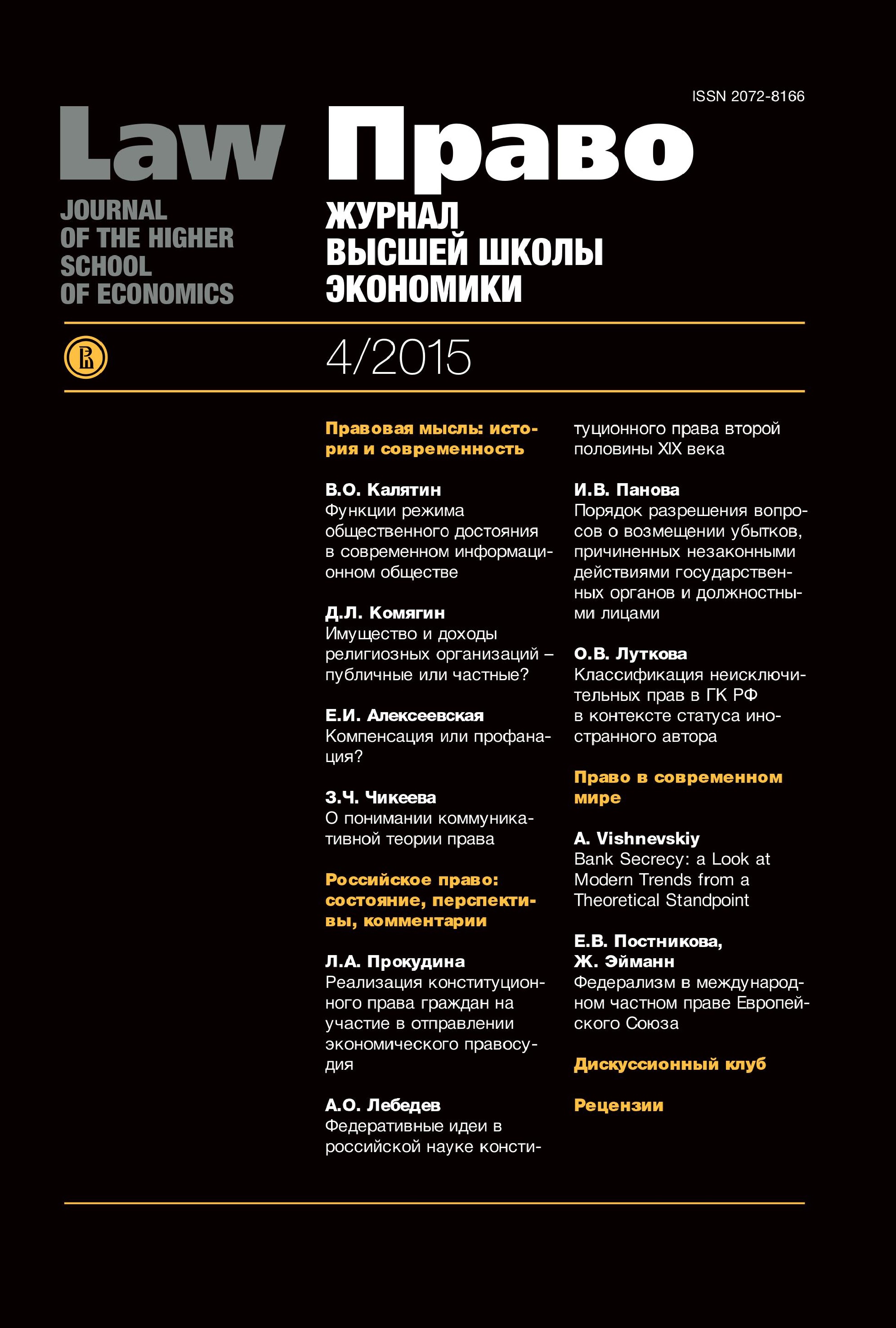Federalism in International Private Law of the European Union
Abstract
With the tendency of economic integration represented in spreading integrational associations, the concept of federalism should not be probably identified only with a form of state territorial pattern but some international organizations and or interstate unions. A representative example is the European Union (EU). When uniting states in an interstate or international union, a decision should be made on the obligation to administer collisions in private law under various legal systems. The objective of the research is to determine the authority of competence in administering the issues of EU international private law and to identify the features of the EU as a federation. Relying on the doctrine, EU constitutional documents and the cases of the European Court of Justice, the paper identifies representative features of the EU and stresses the lack of consensus on the legal nature of the EU. The EU competence in international private law both internal and external is limited. Seeking to unify the norms of the member states as to the conflict of laws, the EU exceeded its competence, which is found in violating the principles of subsidiarity and proportionality. The paper on the basis of the EUCJ cases as to a double-barrelled surname examines the influence of EU material law on the mechanisms of legal regulation within international private law and valid at the national level. The features of federation of the EU changed completely the traditional understanding of conflict of laws, which has caused the emergence of a new conflict, i.e. diagonal conflict. The philosophy of federalism bears consequences for the international private law of the member states which mainly accept the form of constitutional limitations and concentrate on the EU’s fundamental freedoms. As a result of borrowing the features of federalism, the conflicts of laws within the EU should be further understood as a complex of conventional private law issues and the issues of sharing competences which require interpretation as conflicts from now on.


















